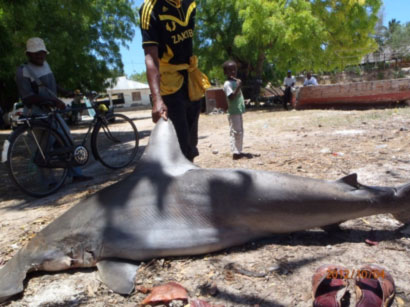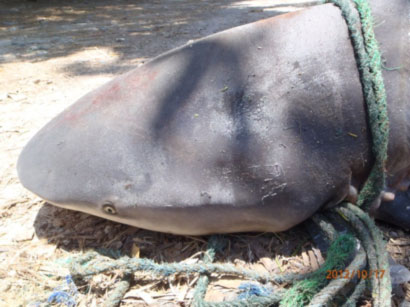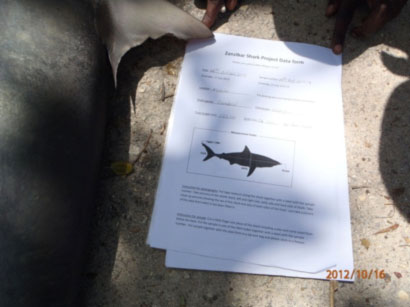Zanzibar Shark Project – The beginning
The Zanzibar Shark Project was initiated in July 2012 by asking local collaborators to assist in collection of data on landed sharks in two villages, Kizimkazi-Dimbani (where we live) in the south and Nungwi in the north of Zanzibar. We provided data forms, tape measure, sample bags and a camera to record information on the sharks caught in the local fisheries.
When we arrived here in Zanzibar we met with Mr Pandu and Mr Chupe who covers the areas in the south and north, respectively. We received data on 9 sharks from the south collected between September and November 2012 (including bull, scalloped hammerhead , bronze whaler and bigeye sixgill shark). We used the photographs and identification keys to match photos to species without much problem. It was slightly disappointing to find the catch rate low in the south, as there is very little to go on to establish what species are present.
The data received from the north were more encouraging. We received records from 68 sharks caught off Nungwi. The data forms indicate that tiger and hammerhead sharks are the dominant catches in the area with some, as of yet, unidentified sharks and the possibility of great whites. All species will be confirmed with the shark identification key once we have downloaded the photos from the camera that Mr Chupe has up in Nungwi.
As my original proposal is based upon hammerheads and considerable background research went into this group of species before leaving for Zanzibar, this is the sort of shark data I’d been hoping for. The possibility of finding juvenile great whites is also very exciting given that this species is not normally found this close to the equator but the sharks must of course be properly identified first before any conclusions are drawn.
We have now provided with additional sampling kits including scales to weigh the landed sharks. We are also adding a third sampling location at the fish market in Stone town (capital of Zanzibar) where sharks from most other areas around Zanzibar are marketed. Shark data forms, plastic vials for genetic material and glass vials for stable isotope analysis have been sent to the fish market in the hope that samples can be obtained.
Tutaonana badye (see you later),
William Jolly
Shark project, Zanzibar
Newcastle University



